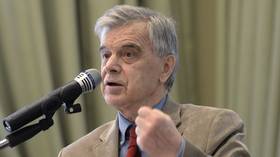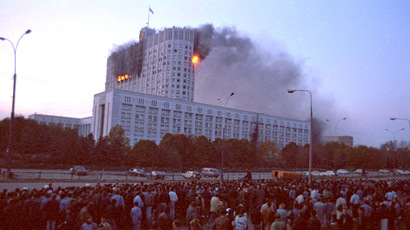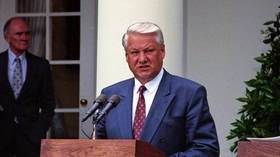Main adversary of Russia’s first president dies at 80

Ruslan Khasbulatov, one of the most powerful men in the early days of post-Soviet Russia, has died in Moscow Region at the age of 80, media has reported, citing his relatives.
The politician and economist led the first Russian parliament and supported Boris Yeltsin, who was yet to become the country's first president, in his standoff against junta coup plotters who sought to grab power in the USSR in 1991. However, just two years after Khasbulatov and Yeltsin stood side by side against the attempted coup, they turned against each other, sparking the 1993 constitutional crisis.
Born in a village near the Chechen capital, Grozny in 1942, Khasbulatov graduated from Moscow State University first as a lawyer and later as an economist, becoming a doctor of economics by 1980. In 1990, he was elected to the parliament of Soviet Russia and became the chairman a year later.
In the 1990s, Khasbulatov started working with Yeltsin. Together, they opposed the coup attempt by a group of Soviet hardliners in 1991. Khasbulatov authored an address called ‘To the citizens of Russia’, in which he condemned the “reactionary anti-constitutional coup,” and urged the people to declare a general strike.
Khasbulatov quickly became disappointed with the Yeltsin government’s economic policies and reforms. The standoff culminated in 1993 when lawmakers refused to approve a prime minister nominated by Yeltsin, prompting the president to dissolve parliament.
Parliament tried to oust Yeltsin, citing a constitutional court ruling, and Khasbulatov accused the president of abuse of power. On Yeltsin’s orders, Russian troops stormed the ‘White House’ of the parliament in Moscow. Khasbulatov was arrested but was pardoned by a new parliament and released one year later.
Khasbulatov returned to academia in 1994 and worked at the Plekhanov School of Economics in Moscow as head of the international economics desk. He remained highly critical of Yeltsin and blamed him for what he perceived as Russia’s shortcomings. In 2021, he claimed that Yeltsin had been surrounded by “hundreds” of CIA agents who instructed him on how to run Russia.














